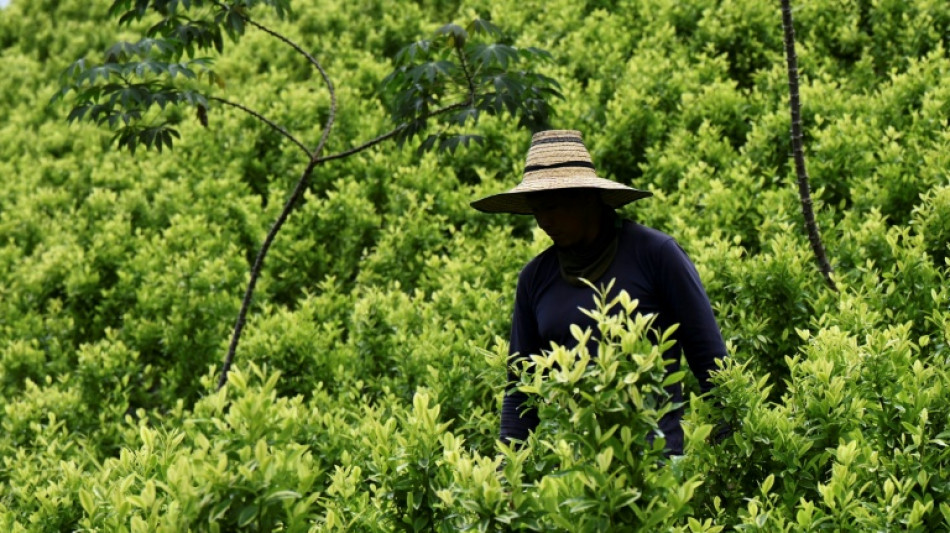
-
 Amazon adds AI muscle to connected home lineup
Amazon adds AI muscle to connected home lineup
-
Antarctic sea ice hits its third-lowest winter peak on record

-
 UN Security Council approves new military force to fight Haiti gangs
UN Security Council approves new military force to fight Haiti gangs
-
Dolphins' Hill out for season after knee surgery

-
 Rodri 'not ready' for rigours of Man City schedule, says Guardiola
Rodri 'not ready' for rigours of Man City schedule, says Guardiola
-
With all-or-nothing Gaza plan, Trump turns tables for Israel

-
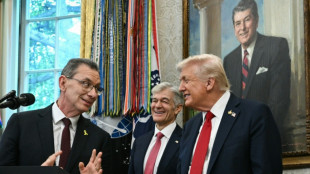 Trump announces Pfizer deal he says will lower certain drug prices
Trump announces Pfizer deal he says will lower certain drug prices
-
Trump gives Hamas '3 or 4 days' on Gaza deal
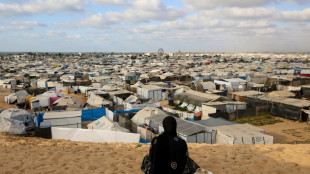
-
 Real Madrid thrash Kairat with Mbappe hat-trick
Real Madrid thrash Kairat with Mbappe hat-trick
-
Deepti, Amanjot fire as India crush Sri Lanka in Women’s World Cup opener

-
 Deadlines loom for Milan's Olympic village as Winter Games near
Deadlines loom for Milan's Olympic village as Winter Games near
-
At least 5 dead after strong quake in central Philippines
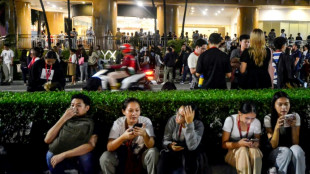
-
 Estonia PM says Russia incursions aim to distract EU from Ukraine: AFP interview
Estonia PM says Russia incursions aim to distract EU from Ukraine: AFP interview
-
DR Congo ex-president Kabila sentenced to death in absentia for 'treason'
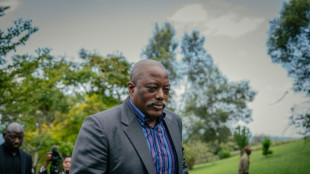
-
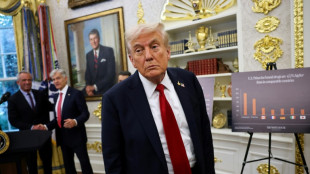 Trump says US government will 'probably' shut down
Trump says US government will 'probably' shut down
-
Board of Spain's Sabadell bank rejects improved BBVA takeover bid

-
 Howe blasts irrelevant criticism of Woltemade after 'idiot' jibe
Howe blasts irrelevant criticism of Woltemade after 'idiot' jibe
-
Erasmus ready for 'high stakes' Argentina clash in Rugby Championship finale

-
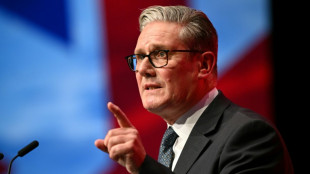 Starmer vows to fight for Britain's 'soul', thwart far right
Starmer vows to fight for Britain's 'soul', thwart far right
-
Strong quake causes damage, panic in central Philippine island
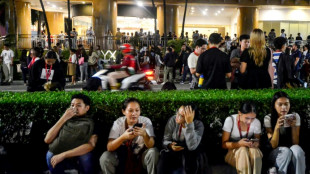
-
 PSG must keep Barca's 'Harry Potter' Pedri at bay: Luis Enrique
PSG must keep Barca's 'Harry Potter' Pedri at bay: Luis Enrique
-
'I couldn't reach them': Afghans abroad despair at blackout
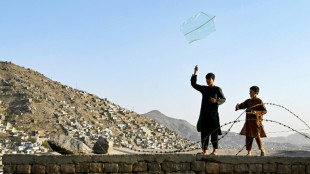
-
 US stocks slip as government shutdown looms
US stocks slip as government shutdown looms
-
Key warns England not to be 'stupid' on Ashes tour

-
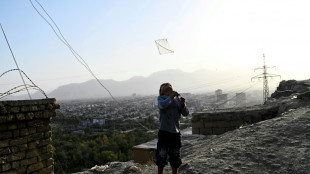 UN calls for Taliban to restore internet as Afghanistan goes dark
UN calls for Taliban to restore internet as Afghanistan goes dark
-
Saliba says he was focused on staying at Arsenal after signing new deal

-
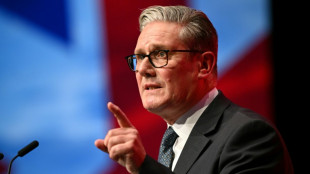 Starmer vows to fight for 'decent' Britain, as he battles Farage
Starmer vows to fight for 'decent' Britain, as he battles Farage
-
US on brink of government shutdown with funding talks stalled
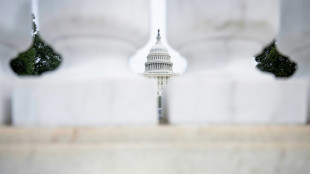
-
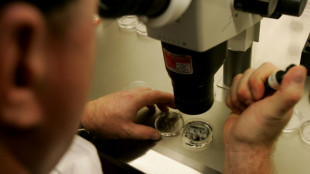 Human skin cells turned into fertilisable eggs for first time
Human skin cells turned into fertilisable eggs for first time
-
UN warns Myanmar conflict blocking Rohingya return

-
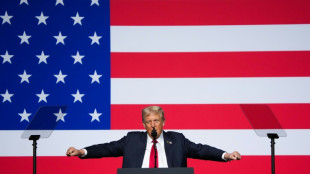 Trump tells generals US faces 'war from within'
Trump tells generals US faces 'war from within'
-
Williams absence 'could help us', say Dortmund as Guirassy back against Athletic

-
 Louis Vuitton unveils ethereal collection at Paris Fashion week
Louis Vuitton unveils ethereal collection at Paris Fashion week
-
ECB chief says eurozone weathering Trump tariff storm
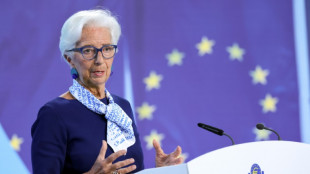
-
 Nche starts for South Africa as they eye Rugby Championship title against Argentina
Nche starts for South Africa as they eye Rugby Championship title against Argentina
-
AI tool helps researchers treat child epilepsy

-
 Brigitte Bardot slams Saint-Tropez after decades in jet-set port
Brigitte Bardot slams Saint-Tropez after decades in jet-set port
-
Pentagon chief tells US military leaders to fix 'decades of decay'
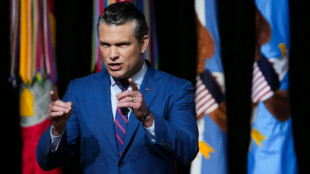
-
 Spotify founder Daniel Ek to give up CEO role
Spotify founder Daniel Ek to give up CEO role
-
Barca star Yamal must 'work hard' to reach top level, says Flick
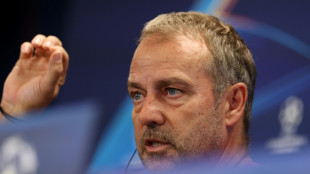
-
 EU green lights Prada's bid for Versace
EU green lights Prada's bid for Versace
-
New youth-led protests in Madagascar despite government's dismissal
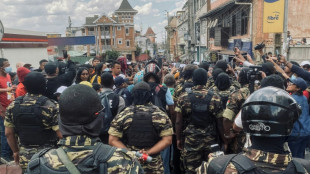
-
 Sinner to face teenager Tien in Beijing final as Gauff battles on
Sinner to face teenager Tien in Beijing final as Gauff battles on
-
Gold hits record, dollar drops as US shutdown looms

-
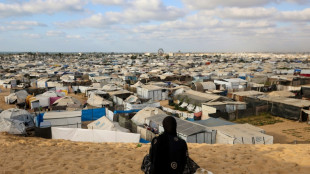 Hamas reviewing Trump's Gaza plan
Hamas reviewing Trump's Gaza plan
-
Alcaraz beats Fritz in Tokyo for eighth title of season

-
 Vietnam jails former officials over gold bar graft: state media
Vietnam jails former officials over gold bar graft: state media
-
German far-right MP's ex aide jailed for spying for China

-
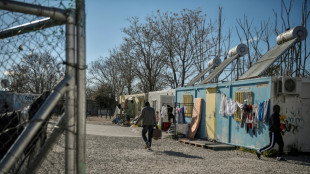 Who will take 30,000 asylum seekers? EU solidarity faces big test
Who will take 30,000 asylum seekers? EU solidarity faces big test
-
PSG's Kvaratskhelia to miss Barcelona Champions League trip


Aiming a blow at narcos, Colombia pays farmers to uproot coca
With cocaine production at an all-time high, Colombia's government is testing a pacific approach to its narcotics problem: paying farmers to uproot crops of coca, the drug's main ingredient.
Among the beneficiaries are Alirio Caicedo and his son Nicolas, who a decade ago planted an expanse of coca as they staked their future on the continued patronage of criminal gangs.
Today, they are uprooting the crops and hoping for the best.
The Caicedos and some 4,000 other Colombian families have entered into a pact with the government to replace their coca with alternative crops such as cocoa and coffee.
It is part of a $14.4 million project to reduce supply of a product blamed for untold misery in a country where armed groups force rural communities to grow coca and raze forests for its cultivation.
The project seeks to eradicate coca production on 45,000 hectares in three of Colombia's most conflict-riddled regions, including the southwestern Micay Canyon where the Caicedos ply their trade in the Argelia municipality.
For farmers it is a risk.
They cannot be sure that their new plantations -- coffee in the Caicedos' case -- will succeed, or that guerrillas and other groups whose income depend on cocaine sales will leave them in peace.
"When one is planting a coca plant, there is hope that in time... there will be a harvest and there will be some income," Nicolas Caicedo, 44, told AFP while he and his dad, 77, shoveled and tugged at the remaining coca shrubs on their property.
"Uprooting the plants means that... there will be no more harvests -— in other words, no more money," from coca at least.
With coca, the Caicedos said they were guaranteed an income of about $800 per month.
They have received an initial payment of about $300 under the project to grow coffee, with more to come.
But another farmer, who spoke to AFP on condition of anonymity, said he doubted the project could work in areas such as Argelia where illegal groups outnumber the state in terms of fighters and guns.
"No armed group that lives off (coca) is going to want a farmer to stop growing coca and switch to coffee," he said.
- 'Naive' -
Gustavo Petro, Colombia's first-ever leftist president, took office in 2022 with the goal of extricating his country from the US-led "war on drugs" blamed for double-victimization of rural Colombians already living under the yoke of violent criminal groups.
On his watch, cocaine production in Colombia -- the world's biggest exporter of the drug -- reached record levels as demand continues to grow in Europe and the United States -- the principal consumer.
Several previous attempts to get Colombian coca producers to change crops have failed as armed groups caused havoc and government payments and other assistance eventually dried up.
For Gloria Miranda, head of Colombia's illegal crop substitution program, told AFP would be naive to think this new program will end drug trafficking "as long as there is a market of 20 million consumers and it (cocaine) remains illegal."
In his stated quest for "total peace," Petro has sought to negotiate with a variety of armed groups, meaning fewer military operations and the abandonment of forced coca eradication.
But talks have mostly broken down, and the arrival of Donald Trump in the White House in January has ramped up pressure on Bogota.
The Trump administration is reviewing Colombia's certification as an ally in the fight against drugs -- a move that could restrict millions of dollars in military aid.
With high stakes for its crop replacement gamble, observers fear the government may be taken advantage of.
Some farmers may "try to deceive" by taking the money while continuing to grow coca, Argelia government secretary Pablo Daza told AFP.
Without adequate monitoring, "the chances are quite high that we are wasting money," added Emilio Archila, who oversaw a similar, failed, project under former President Ivan Duque.
Miranda assures there will be "meticulous" satellite monitoring, and anyone found not to be complying will be expelled from the program.
Used not only for cocaine, the coca leaf is also chewed as a stimulant in Andean countries or brewed into a tea thought to combat altitude sickness.
Colombia's appeals for the leaf to be removed from a UN list of harmful narcotics so it can be commercialized in alternative products such as fertilizers or beverages, have so far fallen on deaf ears.
N.Schaad--VB
